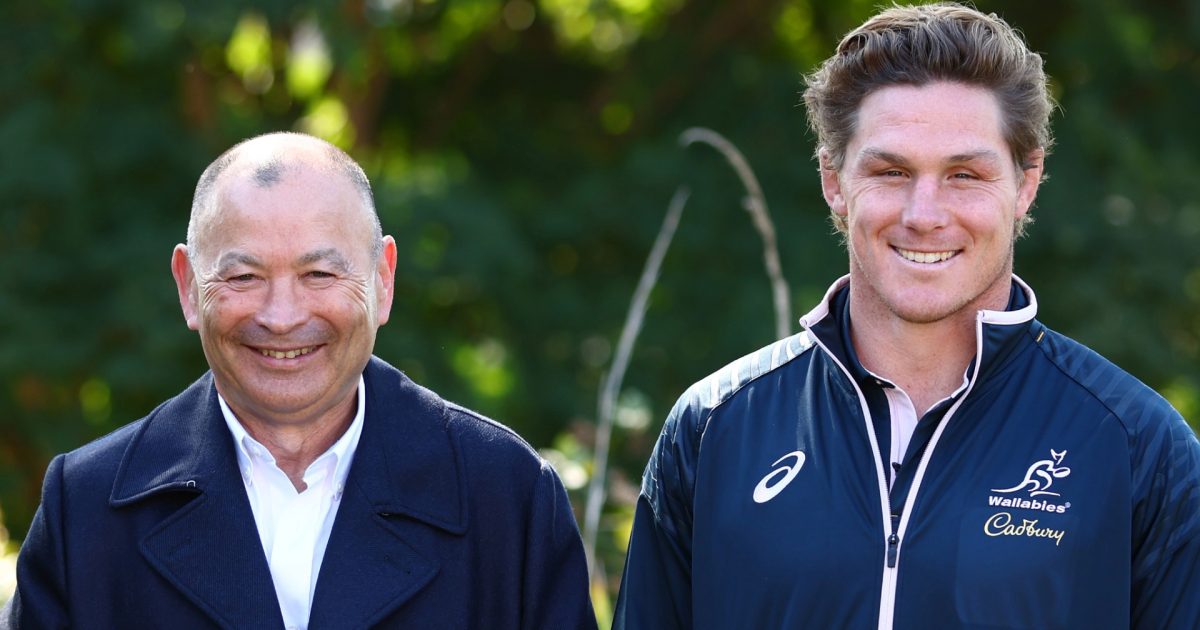
Selection issues highlighted by players in review of Wallabies' 2023 fiasco

More transparency around player selections was one of 23 recommendations made to Rugby Australia following an external review into the Wallabies’ diabolical 2023 season under Eddie Jones.
RA released the findings of the review on Thursday from a four-person panel comprising former internationals Andrew Slack and Justin Harrison, industry expert Darlene Harrison and Pasifika adviser Moana Leilua.
An overhaul of the high-performance unit – which has already been done with the appointments of Peter Horne as HP director, David Nucifora as an adviser and Joe Schmidt as Jones’s replacement as Wallabies head coach – was one of the key recommendations.
As was greater alignment between Australia’s five Super Rugby franchises for the greater good of the Wallabies.
Tellingly, establishing “more clearly defined roles and responsibilities for coaching staff” and refining “the team selection process to be more transparent for players” were also suggested.
The omission of long-time former captain Michael Hooper and fellow senior statesman Quade Cooper were the two biggest controversies arising from Jones’s naming of his greenhorn 33-man World Cup squad last year.
Yet Jones repeatedly refused to explain Cooper’s non-selection, which left Australia without an experienced playmaker during their doomed campaign in France, before finally revealing after the tournament he believed the Wallabies needed to move in another direction to progress.
RA chief executive Phil Waugh said 94 participants from the Wallabies’ playing group, coaching staff and support group offered feedback for the review.
“What’s coming through from the players is you want real clarity as to how teams are being selected, who’s responsible for selection,” Waugh said.
“But also having real consistency of communication as to why a team is selected.
“And if you miss out, why did you miss out?”
The Wallabies failed to progress out of the group stages of a World Cup for the first time in history after losing to Fiji also for the first time since 1954 and suffering their biggest ever defeat at the tournament, 40-6 against Wales.
Jones subsequently quit just 10 months into a five-year deal, prompting RA’s independent review.
“Following the Rugby World Cup last year, we began to systematically apply structural and personnel changes to address a significant number of the improvement opportunities raised in the review,” RA chief executive Phil Waugh said on Thursday.
“Last season was a unique situation with a unique set of circumstances, and it was important for us to hold an external process to get a very detailed and honest evaluation from the stakeholders – especially the players.
“This will allow us to process the 2023 season and use it to build a stronger Wallabies program.
“We have been stressing the importance of an aligned and united rugby ecosystem across all levels, and it is essential that the Wallabies lead the way – the Wallabies are an important team to Australia, with a long and storied history.
“I am confident that this review will help draw a line in the sand as we strive to implement the processes and structures that will drive the Wallabies towards a successful future.”
Horne said new coach Schmidt was across all the recommendations and was busily working behind the scenes in readiness for his first Test in charge, a shot at redemption against Wales in Sydney on July 6.
“He’s already making steps in terms of creating a culture, engaging with players,” Horne said.
“The Wallabies are under-performed and we’re looking to perform to the best of our ability.
“Joe talks about being competitive. He’s always very humble in that way.
“We will do our best to make sure that we’ve got this year the best team so that when we get into the British and Irish Lions next year, we’re actually able to compete significantly.”









































